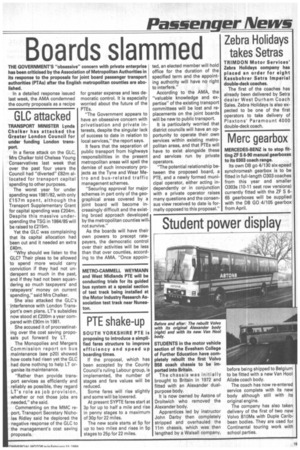Boards slammed
Page 21

If you've noticed an error in this article please click here to report it so we can fix it.
THE GOVERNMENT'S "obsessive" concern with private enterprise has been criticised by the Association of Metropolitan Authorities in its response to the proposals for joint board passenger transport authorities (PTAs) after the English metropolitan counties are abolished.
In a detailed response issued last week, the AMA condemned the county proposals as a recipe for greater expense and less democratic control. It is especially worried about the future of the PTEs.
"The Government appears to have an obsessive concern with privatisation and private interests, despite the singular lack of success to date in relation to local services," the report says.
It fears that the separation of public transport from highways responsibilities in the present metropolitan areas will spell the demise of such innovatory projects as the Tyne and Wear Metro and bus-related traffic management schemes.
"Securing approval for major schemes in part only of the geographical areas covered by a joint board will become increasingly difficult and the existing broad approach developed by the metropolitan counties wills not survive."
As the boards will have their own powers to precept ratepayers, the democratic control over their activities will be less than that over counties, according to the AMA. "Once appoin ted, an elected member will hold office for the duration of the specified term and the appointing authority will have no right to interfere."
According to the AMA, the "valuable knowledge and expertise" of the existing transport committees will be lost and replacements on the joint boards will be new to public transport.
It is particularly worried that district councils will have an opportunity to operate their own services within existing metropolitan areas, and that PTEs will have to exist alongside these and services run by private operators.
"The potential relationship between the proposed board, a PTE, and a newly formed municipal operator, either acting independently or in conjunction with a private operator raises many questions and the consensus view received to date is formally opposed to this proposal."
















































































